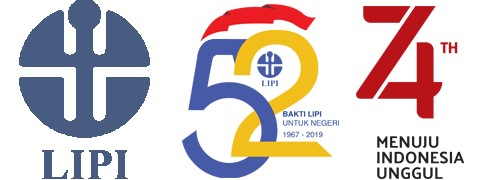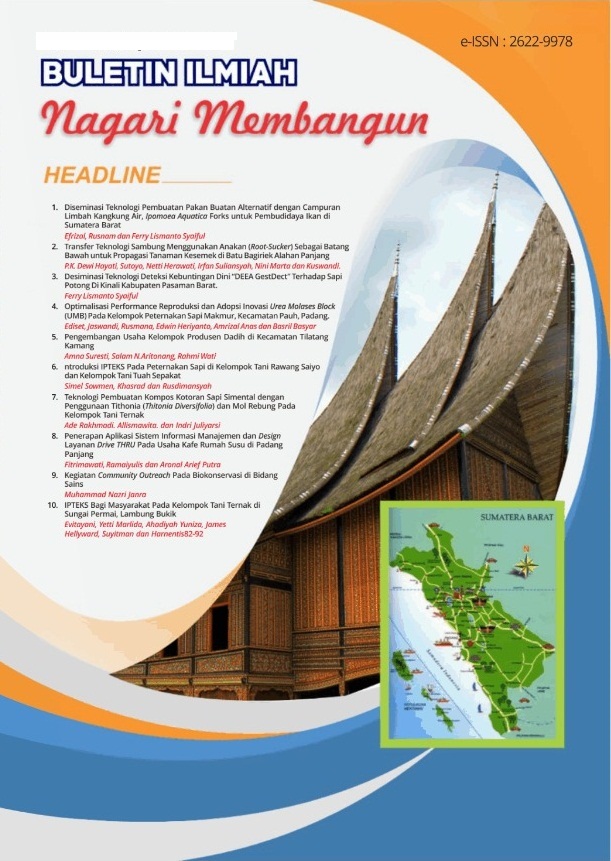EDUKASI PEMBALUT KAIN RAMAH LINGKUNGAN DI SMA ISLAM AL-ISHLAH KOTA BUKITTINGGI
Abstract
Sanitary napkins are used by women during menstruation to absorb blood from the vagina. Sanitary napkins are divided into 2 types, namely disposable pads which are usually made of cotton and plastic, and cloth pads that can be reused (reusable pads). According to the Indonesian Consumers Foundation (YLKI) sanitary napkins are one of the highest polluters in Indonesia. The amount of pad waste in one month can reach 1.4 billion. In addition, the discovery of chlorine which is harmful to health. The average woman uses more than 16,000 pads/tampons/pantyliners during her lifetime. That means, there are more than 45 million women's products are used and discarded every year. In Indonesia alone, it turns out that sanitary pads can reach 26 tons every day. The Faculty of Public Health (FKM) Andalas University realizes that the problem of waste, especially waste from pads, is very important for the balance of the environmental ecosystem. As an initial step to reduce sanitary napkin waste by providing education and socialization on the manufacture of cloth sanitary napkins. The service activity began with socialization with the school principal and teachers, after which it was given to all 29 Al-Ishlah High School students. Then a pre-test was conducted to find out the students' knowledge regarding eco-friendly sanitary napkins and menstruation where more than half of the students (89%) had good knowledge about reproductive health. After that, counseling was carried out regarding the impact of using disposable sanitary napkins on the environment and educating female students to use cloth sanitary napkins and explaining how to make cloth sanitary napkins. It is hoped that by carrying out this community service activity, the use of disposable pads/plastic pads can be reduced little by little, so that the amount of sanitary pad waste can be reduced and the environment will be better.
Downloads
References
Choi, H. 2021. Osong public health and research perspectives use of menstrual sanitary products in women of reproductive age : Korea Nurses. Health Study. 12(1): 20–28.
Karina dan Ihsan, T. 2019. Minimalisasi sampah plastik di kampung jawa melalui gerakan diet sampah plasti. Buletin Ilmiah Nagari Membangun, 2(2): 296–303.
Kemenkes RI. 2018. Pentingnya Menjaga Kesehatan Reproduksi Saat Menstruasi. Kemenkes RI, Jakarta.
Masrizal, Khamelia, L. dan Arbimes. 2019. Edukasi kesehatan reproduksi sebagai upaya promosi kesehatan di SMPN 5 Kota Padang. Buletin Ilmiah Nagari Membangun, 2(1): 218–224.
Puspita, N.F.S. 2019. Dampak sampah pembalut terhadap lingkungan. Osf. Io, 1–7.
Rahmy, H.A., Prativa, N. and Andrianus, R. 2020. Edukasi gizi pedoman gizi seimbang dan isi piringku pada anak Sekolah Dasar Negeri 06 Batang Anai Kabupaten Padang Pariaman. Buletin Ilmiah Nagari Membangun, 3(2):162–172.
Yanti. 2011. Buku Ajar Kesehatan Reproduksi. Pustaka Rihama, Jakarta





















